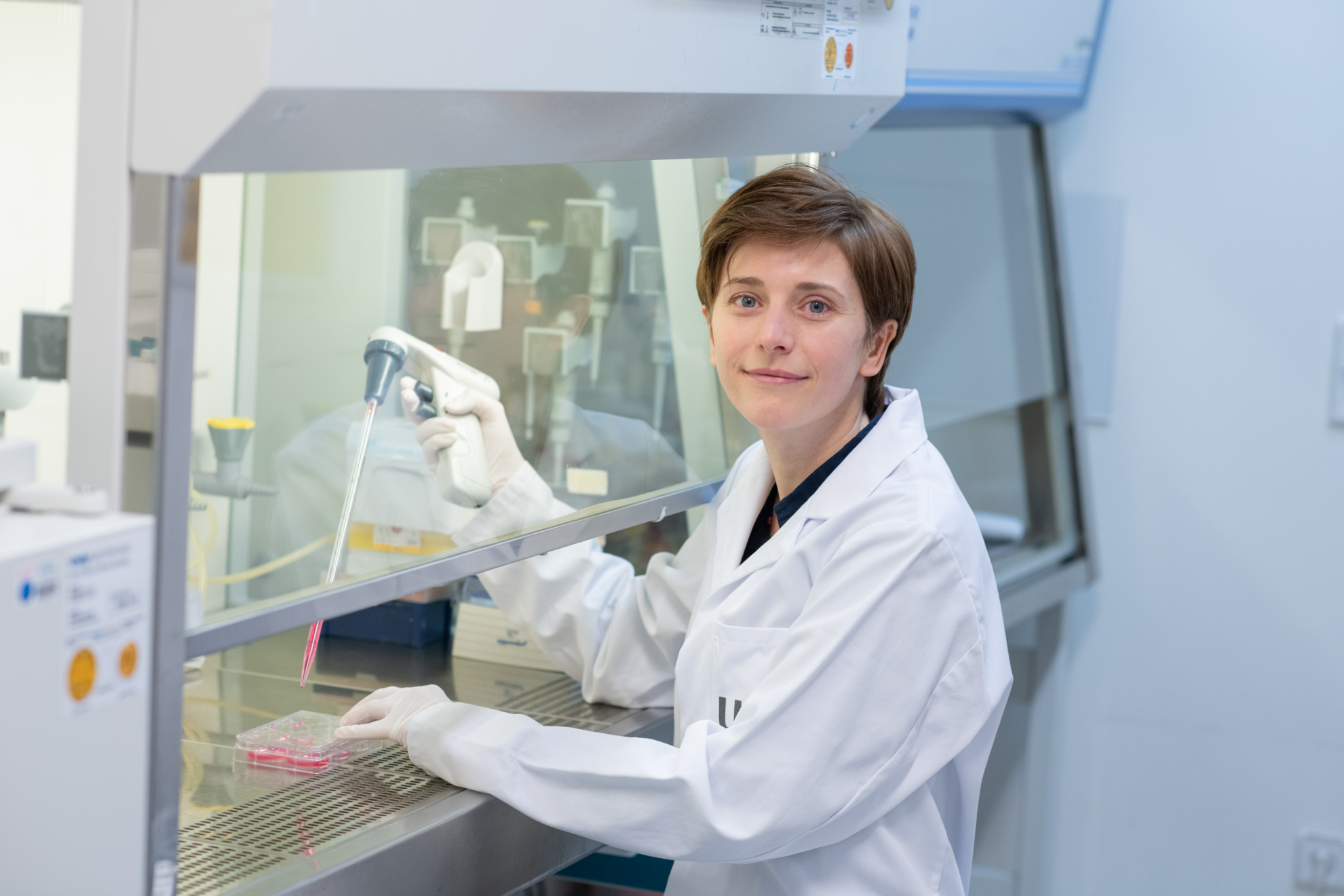Dr. Sandra Heller
Dr. Sandra Heller a project leader at the Institute of Molecular Oncology and Stem Cell Biology, led by Prof. Dr. med. Alexander Kleger. Her research focuses on in vitro stem cell differentiation of pancreatic endocrine cells and diabetes modelling.
Type 1 (T1D) and type 2 (T2D) diabetes are the most common forms, yet the current classification does not account for the substantial clinical and biological variability observed in patients. Monogenic diabetes is caused by mutations in a single gene, while common variants in these genes can be associated with multifactorial diabetes, suggesting shared disease mechanisms. However, the precise molecular mechanisms are only beginning to be understood. Over the past decade, optimized pancreatic differentiation platforms for human pluripotent stem cells (hPSC) have been developed to address species-specific differences observed in mouse models. Despite this progress, only a limited number of diabetes-causing genes have been identified and functionally characterized in detail. Our recent work demonstrated that mutations in the ONECUT1 gene cause a new neonatal diabetes syndrome in homozygous patients, whereas heterozygous carriers develop early-onset diabetes. We employed genome engineered human embryonic stem cells (hESC) as well as reprogrammed fibroblasts from the patient featuring neonatal diabetes in our pancreatic stem cell differentiation platform. Stage-specific functional characterization revealed that ONECUT1 plays an important role in transcriptional regulation during pancreatic progenitor formation and the initiation of the endocrine developmental program.
My research concept integrates clinical studies, human genetics and in vitro differentiation of human PSCs to identify and characterize novel diabetes genes. A deeper understanding of the molecular pathomechanisms in diabetes could enhance the development of personalized therapies. Therefore, our ongoing and future studies aim to elucidate the role of novel candidate genes and regulatory sequences in pancreas development and function by using our established stem cell model system.
My current research projects are funded by the Medical Scientist Program at Ulm University and the German Research Foundation (DFG).

